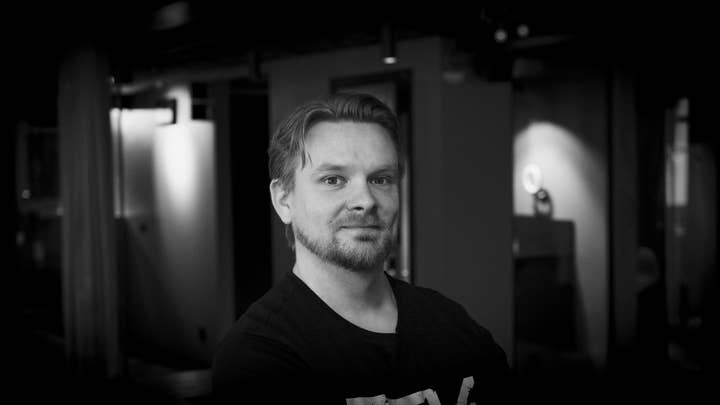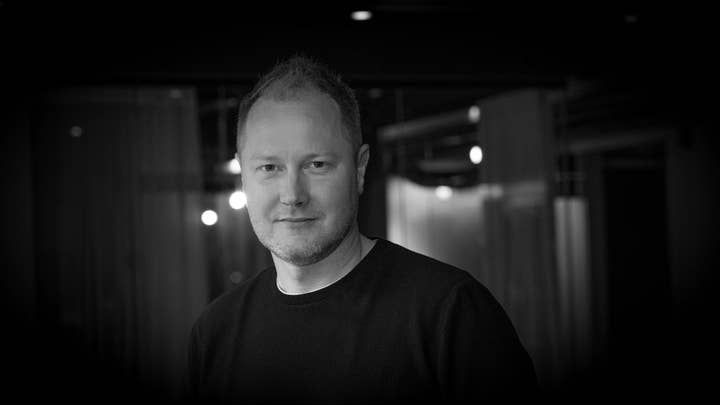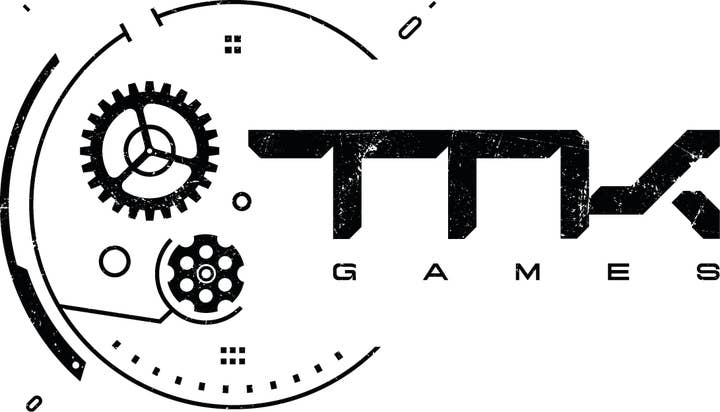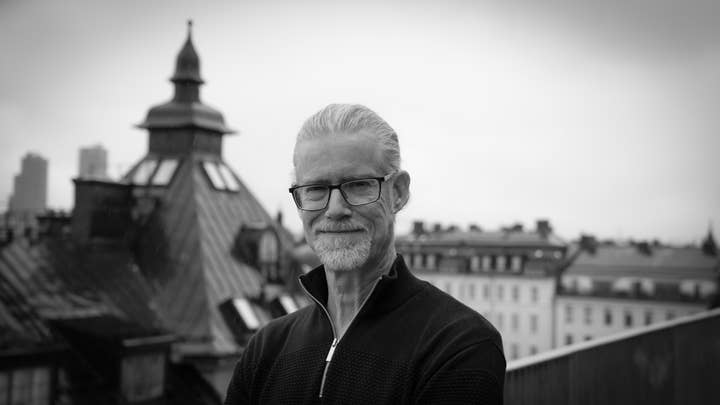Battlefield leaders form new shooter studio Time To Kill Games
Lars Gustavsson creates new AAA games team in Stockholm: “We have to dare to be different”
Former EA DICE leaders have reunited to form Time To Kill Games, a new AAA studio based in Stockholm, Sweden.
The developer is led by Lars Gustavsson, who up until November last year, ran the Battlefield series as creative director at EA DICE.
The studio currently consists of seven people, but with plans to scale up to between 80 and 120 employees. It’s working on a new shooter built using Unreal Engine.
Alongside Gustavsson, the team includes Daniel Berlin as senior designer director. Berlin has worked at Ubisoft and Vivendi, and most recently was lead world designer and design director on Battlefield. Vidar Nygren is CTO and technical director and had been at DICE since 1996. He was technical director on Battlefield and directed the creation of EA’s Frostbite Engine.
Finally, Peter Hoyles is TTK’s art director. He rose to studio art director at DICE’s LA studio, and most recently was at Skydance New Media.
Speaking to GamesIndustry.biz, all four founders insist there is more to TTK Games than just ‘a bunch of old DICErs’.
“On the other side of this door, there are people that aren't old DICErs,” says Berlin, pointing off camera. “It's about mixing... I don't necessarily like to call myself old, I don't feel super old, but the old with the new.”
"We need young and untainted minds to dare to come in with radically different ideas"
Lars Gustavsson, TTK Games
Gustavsson adds: “My belief is that we're still just scratching the surface of what the games industry can do. We need young and untainted minds to dare to come in with radically different ideas. Maybe our experience can help with the facilitation of this hive mind that sets up diversity of different perspectives that can bring nuances and, at the first glance, crazy ideas to the table.”
It helps that Stockholm is full of such people, the team add, pointing to the Sweden’s strong education system around games.
“We often get asked how come there are so many developers in Sweden,” Gustavsson says. “I think… we more or less stayed out of the World Wars and had the time and money to grow. There were smart investments in home computers, subsidised home computers by companies, the explosion of internet in Sweden, alongside extremely tech savvy and trendsetting people… almost to the point that you wonder whether we Swedes have lost our soul and just jump on anything that's new,” he explains.
“You can see it in any type of innovation in Sweden, be it music, games, technology. And yes… we do this because we love it, it's our passion to play and make games, but we also recognise that it is a job and we have deliverables and timelines.”

Hoyles jokes: “The winters here are useful for making games as well.”
That Swedish culture is part of the reason why the team is so eager to bring in new people, rather than simply rely on former Battlefield colleagues.
“In Sweden there’s something called Jantelagen [law of Jante],” Berlin explains. “It's about a humbleness for anyone who can takes up a leadership position. You shouldn't think that you know everything. There's always someone else who you can turn to for help. It’s about doing things together and sharing... That's the way forward.
"The first idea you have for design is going to fail. It's meant to fail"
Daniel Berlin, TTK Games
“Take Lars for example, a juggernaut within game development if I ever met one. You're not going to find Lars in some corner office with a nice view. He sits where everyone else sits. The same goes for all of us. It's not even a conversation. We want to keep that flatness.”
Gustavsson continues: “I know working with Brits and Americans, they can be surprised by this consensus way of doing things. What we want is transparency and for people to get involved. To be fair, why should it matter where a good idea comes from? That's just a silly thought. If we find a gold nugget, it doesn't matter if it's my mother who came up with it.
“It’s about how we structure the team [around that mindset], how we share the thesis work between us, and that we believe with a multidiscipline team screening your concepts early, we can catch many more perspectives before we wander into a land of pain because someone was holding it too close to their chest.”

It’s taken six months to grow TTK Games to seven employees, but the time has been spent establishing what the studio is all about and what it’s trying to build. As Gustavsson puts it, the temptation may be to “skip dinner and jump straight to the ice cream”, but that’s not good in the long term.
“We really wanted to lay down the foundation to get the feeling of it being a big company while still having the benefit of it being a start-up,” he says. “We spent a lot of time in building our core values and everything round the work environment so people will feel they come into a well-thought-through and deliberate place.”
Berlin again: “We've actually stopped ourselves from taking on too many too early. As Lars said – we don't want people to come here and be like there's no proper onboarding, no company handbook, no company culture. We want to make sure that that's all in place. That's been the bulk of the work. “
The team has also been focused on having a core game concept, says Nygren.
“Yes,” says Gustavsson. “In parallel with laying the foundation for the studio and how we want to operate, we have of course jumped on thesis work to see what directions we could possibly go in. That will help us dictate the final size of the studio. As most people in the industry tend to realise, bigger isn't always better.”
"It’s really exciting to explore the community around Unreal Engine"
Vidar Nygren, TTK Games
The company’s three core values are ‘lead by example’, ‘push boundaries’ and ‘deliver on promises’, Gustavsson reveals. All of it has come from what the team have learnt during their careers, including at EA DICE. However, it’s not a case of simply replicating what they’ve done at their previous company.
“We can’t just assume that we should match one-to-one with a team setup that we've done in the past,” continues Gustavsson. “It goes to the creative as well. When you’ve spent the last 23, 24 years of your life building Battlefield, it’s very easy that your brain goes into a checklist for what a Battlefield game has. So we force ourselves to take a step back. We haven't jumped on this new journey to do exactly the same thing again. Every day you have to shake yourselves, sometimes, to make sure that you're not walking in those footsteps but dare to do something new.”
Considering their history, it makes sense for the founders of TTK Games to build a multiplayer shooter. But it’s also one of the most expensive and competitive genres to work in. And that’s something the founders are keenly aware of.
“There's many different things you need to do to stand out, for sure,” Berlin says. “You need to deliver something you will only get in our game. You need to have… a secret sauce, I guess. We're not going to talk about that here, it's a little bit too early. But we're working on that ingredient.”

Berlin explains that the approach this time isn’t necessarily to focus on the core mechanics and movement first, but to design a game starting with the meta.
“It's very difficult to build a super strong core game and then attach a meta to that,” he says. “So we’ve started the other way around.”
Gustavsson likens the situation to the creation of Battlefield 1942.
“The target was to be the best in Sweden. There were definitely sleepless nights wondering if we could pull this off. I feel we are well-equipped with tonnes of experience from creative, tech and production perspectives to find our place in the market alongside the big giants.”
Gustavsson says the company has the money for it to take its time and make sure the foundation is there, both with the studio and its first project.
Berlin continues: “The time is the thing that's one of the main attractors for me, because the first idea you have for design is going to fail. If you think it's going succeed from the start… you are so wrong. It's meant to fail. It's an iterative process, and if you don't have that it's not going to be good. Not even on a feature level have I seen someone just present something, implement it and it's golden. Often, it's completely off, we have to pivot 180 to make it fit and then you start finding the gold and then you start cementing.”
The move to Unreal helps with this, Nygren says, who has spent much of the last 15 years building and working on EA’s Frostbite engine.
"I still love DICE and I still love Battlefield"
Lars Gustavsson, TTK Games
“It’s really exciting to explore the community around Unreal,” he says. “Of course, there was a community around Frostbite within EA, and it's a great engine. Coming out now and exploring Unreal and all the third-party software and all the buzz around it, all the new tools coming like MetaHuman and procedural tools… it's really exciting to see what we can do with those and how fast we can find the fun while prototyping.”
Hoyles adds: “I've been working with Unreal for a couple of years now. It’s extremely easy to prototype with. We should be able to make something that looks very good.”
TTK Games adopts a hybrid working model, but the team very much values the in-office experience. Berlin explains that it’ll depend on discipline and what’s needed. For instance, for reviewing software, nothing beats sitting in a room with friends and colleagues, but when it comes to hammering out a design, that’s something that could be done at home.
“It's really about you're given the opportunity to choose being [at home] and being here, and giving that responsibility to the people.”
As people who have spent the vast majority of their careers working within big organisations, the four founders seemed particularly calm about what they’ve set out to do. A suggestion that immediately got a laugh from Gustavsson.

“It's scary. I still love DICE and I still love Battlefield. It wasn't an easy move. But at some point I found myself looking at what to do with my life when I grow up, in combination with leaving things in a good place... and giving room for other people to grow where I left. There is no hiding that leaving was an emotional rollercoaster. I could probably have kept on working there until they wheeled me out. But once I had taken the decision, I am surprised how at ease I am with myself and also being able to follow DICE and Battlefield as a player.”
Hoyles added: “It’s the dream that we are living, even though we miss old colleagues. We have a great opportunity to make something really cool starting from scratch. The opportunity rises above everything else right now.”
So what is the goal for TTK Games? Gustavsson says the company’s mission is to ‘inspire, connect and entertain’, and that’s more than a corporate slogan.
“We want to inspire people to get into the games industry, to try out our games, and try new ways of working,” he concludes.
“Connect is a big part for us, it’s what we’ve done for the last 20 years… multiplayer games, getting people together, have them play as a squad, almost like playing in a band. We've seen our games can change people's lives. There are people who met their wives in the games that we created. Or people who were suffering at home from a mental illness and found others suffering the same and formed a community. We can really change things for people. I find that, above everything else, extremely inspiring.”

